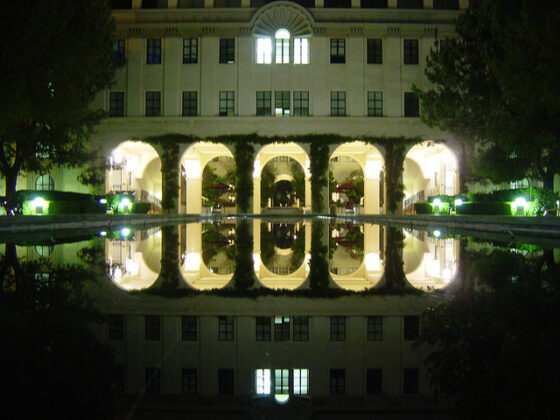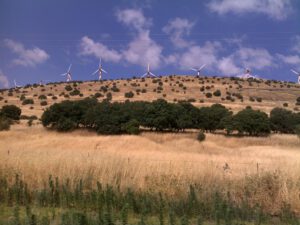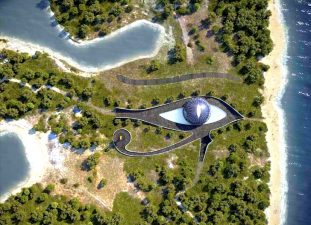 Made to reflect California’s leading Science and Technology institute, the Zewail City of Science and Technology in Egypt could lift the country out of its semi dark age
Made to reflect California’s leading Science and Technology institute, the Zewail City of Science and Technology in Egypt could lift the country out of its semi dark age
Egypt experienced a huge brain drain during the three decades that Hosni Mubarak ruled the country. Formerly a highly acclaimed center for culture and education in the Arab world, literacy fell to just 66% in 2008.
To help lift his fellow countrymen and women out of its veritable dark age, Nobel Laureate Ahmed Zewail is working to establish a Science and Technology Institute in Cairo that will be modeled after the California Institute of Technology (home to NASA’s Jet Propulsion Laboratory). A Caltech Professor, Zewail has already enlisted six Nobel prize winners for the board of trustees, secured an enormous slice of prime real estate, and raised millions of dollars to achieve what has been a twelve year dream.
Prime Real Estate
Zewail’s ambitions to establish what he considers an invaluable institute for science and technology received a crucial boost when Egypt’s Supreme Council of Armed Forces presented him with a downtown villa in Cairo and 300 acres of prime desert worth a total of $1.6 billion.
A further $2 billion will be necessary to complete the project in entirety. Zewaili raised $100 million of that and hopes that once Egypt’s new government is established, they will contribute at least that much on an annual basis.
Reams of Red Tape
Both the Egyptian Cabinet and the Muslim Brotherhood have expressed their support of this project, although it is yet unclear who will be responsible for the ultimately decision-making. When Mubarak was still in power, the project stayed buried for years under reams of red tape.
Although he is convinced that Egypt needs this science and technology institute to lift students out of their collective funk, critics aren’t so sure. Lauri Brand, who is professor and director at the University of Southern California’s School of International Relations, worries that an economic downturn could derail plans. She also questions whether the institute satisfies the country’s most pressing needs.
Who will Attend?
There is also uncertainty over who would be eligible to study at what Pasadena Star calls “the Cairene Caltech,” or where they will continue their studies once they have completed their course work.
But Zewail does not appear deterred. Initially he won’t expect major breakthroughs, but at least students would be enabled to focus on what is within their realm of capability. That starts, he says, with solar and wind energy.
Changes in the business and economic climates will come, he argues. “But we want to be the catalyst – we want to catalyze this process.”
More on Science and Technology Development in Egypt:
17 Lost Egyptian Pyramids Found With Infra Red Technology
Post Revolution Egypt Wants New Wind Farms
Egypt May Survive Climate Change Thanks to AUC Students
image via RBerteig



